Bettina Findenig
Bereits während ihrer Schulzeit haben Bettina die Fächer Mathematik und Physik sehr gefallen. Da ihr der praktische Bezug im BORG fehlte entschied sie…
In this information session, we will shed light on all aspects of a part-time degree program - regardless of whether you are interested in a Bachelor's or Master's degree program.
In addition to the content of the respective degree program, we will also discuss the following questions:
Register directly for the info session of the respective degree program. Our course directors will also be happy to answer any questions you may have.

The Carinthian University of Applied Sciences is offering a new TECH Scholarship for Master Students from Europe, South America & Mexico.
In order to inspire new and talented students from Europe, South America & Mexico to pursue a master's degree in Austria, the Carinthian University of Applied Sciences (CUAS) | FH Kärnten (in collaboration with companies and associations) is offering four scholarships of 8,400 euros each.
This Master's program is organized in a work-friendly way and is therefore compatible with a professional career.
Your Pathway to Solving Today’s Technical Challenges
The complexity of technical systems is continually increasing, and our society relies on an ever-growing number of electronic devices to enhance everyday life. At the same time, numerous industries are exploring new ways to optimize their processes through digitalization. In this rapidly evolving landscape, engineers are faced with demanding and interconnected systems, requiring expertise beyond dealing with individual components. Many businesses struggle to find experts who can navigate the complexities of emerging technologies.
But here's the good news. If you're up for the challenge, our Master Program Systems Design could be just what you need. It offers exceptional opportunities, unique prospectives, and equips you with all the skills necessary to tackle these challenges head-on.
Your Engineering Journey: Acquire Key Engineering Skills and Specialize in Electronics or Robotics
Our four semesters program provides a wide range of courses designed that prepare students for a successful career in engineering. You will gain in-depth knowledge in areas such as Signal Processing and Data Analysis, Control and Automation, Embedded Systems, Electronic Devices and the application of AI in systems design.
Recognizing the unstoppable pace of technological innovation, our program places a strong emphasis on staying at the cutting edge of systems design. That's why we offer two demanding specializations for you to choose from, each with its particular content and characteristics: Electronic Systems and Robotic Systems.
These advanced tracks are tailored for students seeking to deepen their expertise and prepare for leadership roles in these rapidly evolving fields.
At our university, we believe in merging theoretical concepts with practical applications. In the Systems Design Master program students benefit from an interdisciplinary education that enables them to solve exciting problems step by step. To make this possible, we integrate theory with practical examples and laboratory exercises from the first session onwards, fostering an intensive and practical learning environment.
To promote a meaningful connection between teaching and research, we have introduced a unique component in our program - the RESEARCH INTERNSHIP. During the third semester, students have the opportunity to join one of our university's research groups, or alternatively, enroll in relevant elective courses. This enables a direct bridge between academic learning and practical research, enriching the overall educational experience.
We understand that many students have the need to work part-time while pursuing their studies. That's why our Master's program Systems Design is structured with you in mind. Lectures are scheduled on just two weekdays (Tuesday and Thursday), and occasionally on Saturdays. This flexible arrangement enables you to concurrently arrange your studies while working part-time.
Join us at our university's Master's program in Systems Design and embark on a journey that will equip you with the skills, knowledge, and experience you need to meet today's engineering challenges. Apply now to secure your place in this exciting program!
Winterterm 2025
Period I: 01.11.-15.03.2025
Period II: 16.03.-15.05.2025
Period III: 16.05.-15.07.2025
Period IV: 16.07.-30.09.2025*
For applicants from outside Europe applications are only accepted within Period I.
*We reserve the right not to open the period or to close it early.
The semester starts in October - we only offer intake in winterterm!
The start of lectures can be found in the individual timetable which is available after enrollment.
Tuesday, Thursday and Saturday full-time from 08:30 h
Classroom teaching with online parts
Study Guidance
Book your personal appointment right now!
You can find out more about our advisory services, events and fairs on our website.
Language of Instruction: English
Minimum of B2, stated by either
- IELTS (5.5 points in every test section)
- TOEFL (higher intermediate in every test section)
- Cambridge English Qualifications Certificate
With over 100 Study & Work partner companies and organizations, CUAS offers students the opportunity to combine studying and working!
If you have any questions feel free to contact:
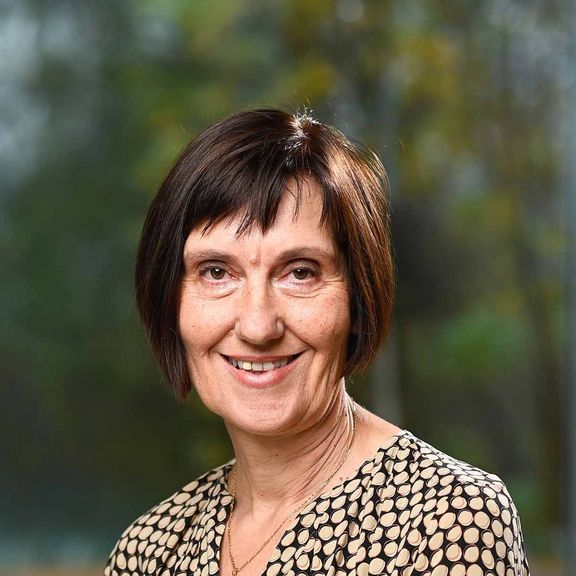
Mag.a Elizabeth Maggauer-Hoffmann
Electrical Energy & Mobility Systems, Industrial Power Electronics, Systems Design, Integrated Systems and Circuits Design
FH-Prof. Dipl.-Ing. Dr. Wolfgang Werth
Head of Degree Program Systems Engineering, Systems Design
w.werth[at]fh-kaernten[dot]at
Systems Design is an advanced engineering program that provides a comprehensive and theory-rich education aimed at fostering talented systems designers. Graduates from this program are equipped with the expertise to comprehend, create, and refine exciting technical systems in the fields of electronics and robotics.
Their skill set extends beyond simple design and implementation of these complex technical systems. They are adept at a holistic design approach, enabling them to consider all aspects of the system from the early stages of planning and conceptual design. The curriculum's main aim is to educate independent engineers with specialized knowledge in areas like Embedded Systems, Electronics, Robotics, Mechatronics and Automation and Control. A new key competency of Systems Design graduates is Data Science and AI. This Master's program, therefore, prepares students for a robust career in engineering, potentially leading to outstanding opportunities in academia and research.
Our alumni have found roles as planning engineers, development engineers, system engineers, plant and production engineers, and even in management and leadership positions.
The range of career fields available to qualified Systems Designers is immense, and the industry's demand for such professionals is high. This program offers an unrivaled opportunity to enter this dynamic field.
As a student of Systems Design, you should demonstrate your skills in these key areas:
| Lecture | Type | SPPS | ECTS-Credits | Course number |
|---|---|---|---|---|
| Advanced Engineering Mathematics | ILV | 3,0 | 5,0 | M2.05280.10.021 |
| Dynamical Systems | ILV | 3,0 | 5,0 | M2.05280.10.031 |
| Essential Engineering Topics - Academic Skills | ILV | 1,5 | 2,5 | M2.05280.10.013 |
| Essential Engineering Topics - Electronic Engineering | ILV | 1,5 | 2,5 | M2.05280.10.012 |
| Introduction to Machine Learning | ILV | 3,0 | 5,0 | M2.05280.10.061 |
| Signal and Data Analysis | ILV | 3,0 | 5,0 | M2.05280.10.041 |
| Software Development for Embedded Systems | ILV | 3,0 | 5,0 | M2.05280.10.051 |
| Lecture | Type | SPPS | ECTS-Credits | Course number |
|---|---|---|---|---|
| Research Project Seminar 1 | SE | 3,0 | 5,0 | M2.05280.30.111 |
| Research Project Seminar 2 | SE | 3,0 | 5,0 | M2.05280.30.121 |
| Sustainable Systems Design | ILV | 3,0 | 5,0 | M2.05280.30.101 |
| Sustainable Systems Engineering | ILV | 3,0 | 5,0 | M2.05280.30.091 |
| Study program: Electronic Systems | Type | SPPS | ECTS-Credits | Course number |
| Electronics Special Topics | ILV | 3,0 | 5,0 | M2.05282.30.081 |
| FPGA Systems Prototyping | ILV | 3,0 | 5,0 | M2.05282.30.061 |
| High Speed Systems Design | ILV | 3,0 | 5,0 | M2.05282.30.051 |
| Power Electronics | ILV | 3,0 | 5,0 | M2.05282.30.071 |
| Study program: Robotic Systems | Type | SPPS | ECTS-Credits | Course number |
| Industrial Control | ILV | 3,0 | 5,0 | M2.05281.30.021 |
| Robot Dynamics and Control | ILV | 3,0 | 5,0 | M2.05281.30.031 |
| Robot-based Production Systems | ILV | 3,0 | 5,0 | M2.05281.30.011 |
| Robotics Special Topics | ILV | 3,0 | 5,0 | M2.05281.30.041 |
| Lecture | Type | SPPS | ECTS-Credits | Course number |
|---|---|---|---|---|
| Advanced Control Systems | ILV | 3,0 | 5,0 | M2.05280.20.021 |
| Industrial Automation Systems | ILV | 3,0 | 5,0 | M2.05280.20.031 |
| Peripheral Devices and Sensors | ILV | 3,0 | 5,0 | M2.05280.20.011 |
| Study program: Electronic Systems | Type | SPPS | ECTS-Credits | Course number |
| Advanved Electronic Systems | ILV | 3,0 | 5,0 | M2.05282.20.091 |
| Electrodynamics | ILV | 3,0 | 5,0 | M2.05282.20.081 |
| Signal and Data Processing | ILV | 3,0 | 5,0 | M2.05282.20.071 |
| Study program: Robotic Systems | Type | SPPS | ECTS-Credits | Course number |
| Advanced Robotic Systems | ILV | 3,0 | 5,0 | M2.05281.20.061 |
| Computer Vision | ILV | 3,0 | 5,0 | M2.05281.20.051 |
| Modelling and Simulation | ILV | 3,0 | 5,0 | M2.05281.20.041 |
| Lecture | Type | SPPS | ECTS-Credits | Course number |
|---|---|---|---|---|
| Master Exam | ME | 0,0 | 3,0 | M2.05280.40.031 |
| Master Thesis | MT | 0,5 | 25,0 | M2.05280.40.011 |
| Master Thesis Seminar | SE | 2,0 | 2,0 | M2.05280.40.021 |
| Lecture | Type | SPPS | ECTS-Credits | Course number |
|---|---|---|---|---|
| Advanced Engineering Mathematics | ILV | 3,0 | 5,0 | M2.05280.10.021 |
| Dynamical Systems | ILV | 3,0 | 5,0 | M2.05280.10.031 |
| Essential Engineering Topics - Academic Skills | ILV | 1,5 | 2,5 | M2.05280.10.013 |
| Essential Engineering Topics - Electronic Engineering | ILV | 1,5 | 2,5 | M2.05280.10.012 |
| Introduction to Machine Learning | ILV | 3,0 | 5,0 | M2.05280.10.061 |
| Signal and Data Analysis | ILV | 3,0 | 5,0 | M2.05280.10.041 |
| Software Development for Embedded Systems | ILV | 3,0 | 5,0 | M2.05280.10.051 |
| Lecture | Type | SPPS | ECTS-Credits | Course number |
|---|---|---|---|---|
| Electromagnetic Interference in Power Electronics | SE | 3,0 | 5,0 | M2.08860.30.015 |
| Integrated Sensors | ILV | 3,0 | 5,0 | M2.02840.30.031 |
| Radio-Frequency Circuits and Systems | ILV | 3,0 | 5,0 | M2.02840.30.021 |
| Research Project Seminar 1 | SE | 3,0 | 5,0 | M2.05280.30.111 |
| Research Project Seminar 2 | SE | 3,0 | 5,0 | M2.05280.30.121 |
| Sustainable Systems Design | ILV | 3,0 | 5,0 | M2.05280.30.101 |
| Sustainable Systems Engineering | ILV | 3,0 | 5,0 | M2.05280.30.091 |
| Study program: Electronic Systems | Type | SPPS | ECTS-Credits | Course number |
| Electronics Special Topics | ILV | 3,0 | 5,0 | M2.05282.30.081 |
| FPGA Systems Prototyping | ILV | 3,0 | 5,0 | M2.05282.30.061 |
| High Speed Systems Design | ILV | 3,0 | 5,0 | M2.05282.30.051 |
| Power Electronics | ILV | 3,0 | 5,0 | M2.05282.30.071 |
| Study program: Robotic Systems | Type | SPPS | ECTS-Credits | Course number |
| Industrial Control | ILV | 3,0 | 5,0 | M2.05281.30.021 |
| Robot Dynamics and Control | ILV | 3,0 | 5,0 | M2.05281.30.031 |
| Robot-based Production Systems | ILV | 3,0 | 5,0 | M2.05281.30.011 |
| Robotics Special Topics | ILV | 3,0 | 5,0 | M2.05281.30.041 |
| Lecture | Type | SPPS | ECTS-Credits | Course number |
|---|---|---|---|---|
| Advanced Control Systems | ILV | 3,0 | 5,0 | M2.05280.20.021 |
| Industrial Automation Systems | ILV | 3,0 | 5,0 | M2.05280.20.031 |
| Peripheral Devices and Sensors | ILV | 3,0 | 5,0 | M2.05280.20.011 |
| Study program: Electronic Systems | Type | SPPS | ECTS-Credits | Course number |
| Advanved Electronic Systems | ILV | 3,0 | 5,0 | M2.05282.20.091 |
| Electrodynamics | ILV | 3,0 | 5,0 | M2.05282.20.081 |
| Signal and Data Processing | ILV | 3,0 | 5,0 | M2.05282.20.071 |
| Study program: Robotic Systems | Type | SPPS | ECTS-Credits | Course number |
| Advanced Robotic Systems | ILV | 3,0 | 5,0 | M2.05281.20.061 |
| Computer Vision | ILV | 3,0 | 5,0 | M2.05281.20.051 |
| Modelling and Simulation | ILV | 3,0 | 5,0 | M2.05281.20.041 |
| Lecture | Type | SPPS | ECTS-Credits | Course number |
|---|---|---|---|---|
| Master Exam | ME | 0,0 | 3,0 | M2.05280.40.031 |
| Master Thesis | MT | 0,5 | 25,0 | M2.05280.40.011 |
| Master Thesis Seminar | SE | 2,0 | 2,0 | M2.05280.40.021 |
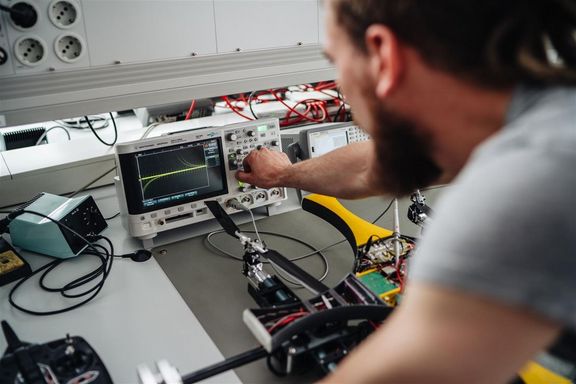
Research and development make an important contribution to transforming broad university knowledge into practical application solutions and to promoting cooperation between companies and universities.
Graduates have an in-depth understanding of complex technical systems in the fields of mechatronics and electronics. They gain expertise in the analysis, design & control of complex multidisciplinary systems & processes.
The following list of branches gives a brief overview of the possible fields of employment:
The successful completion turn qualifies the graduate to undertake a doctorate according to § 6 FHStG (4) FHStG stands for Fachhochschul Studies Act).
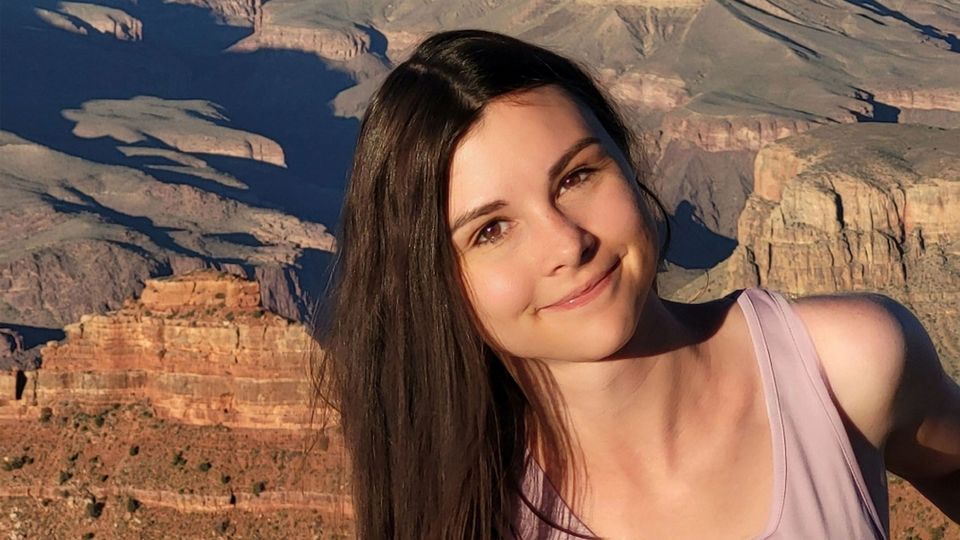
Bereits während ihrer Schulzeit haben Bettina die Fächer Mathematik und Physik sehr gefallen. Da ihr der praktische Bezug im BORG fehlte entschied sie…
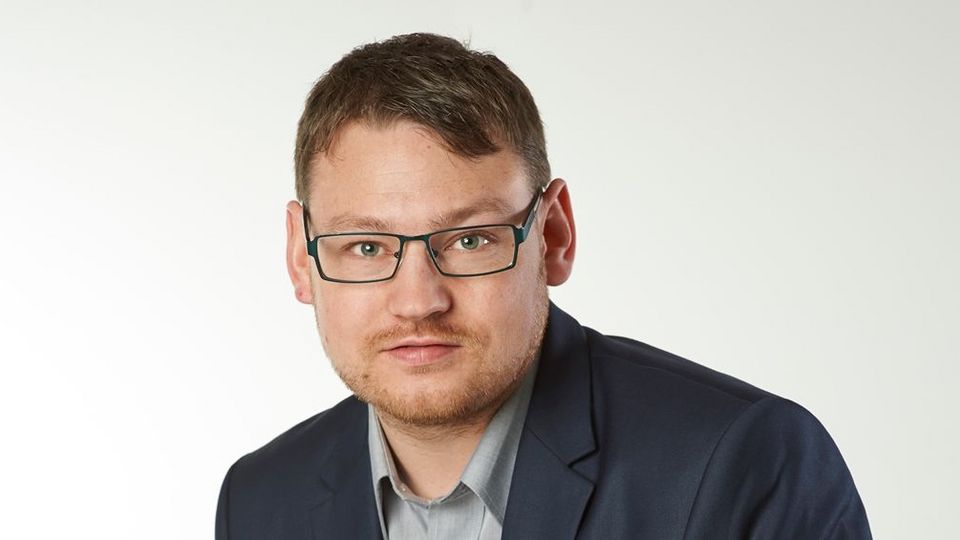
Für viele stellt sich mit etwa 15 Jahren die Frage, ob sie eine Lehre machen oder lieber weiterhin die Schulbank drücken wollen. Was die Wenigsten in…
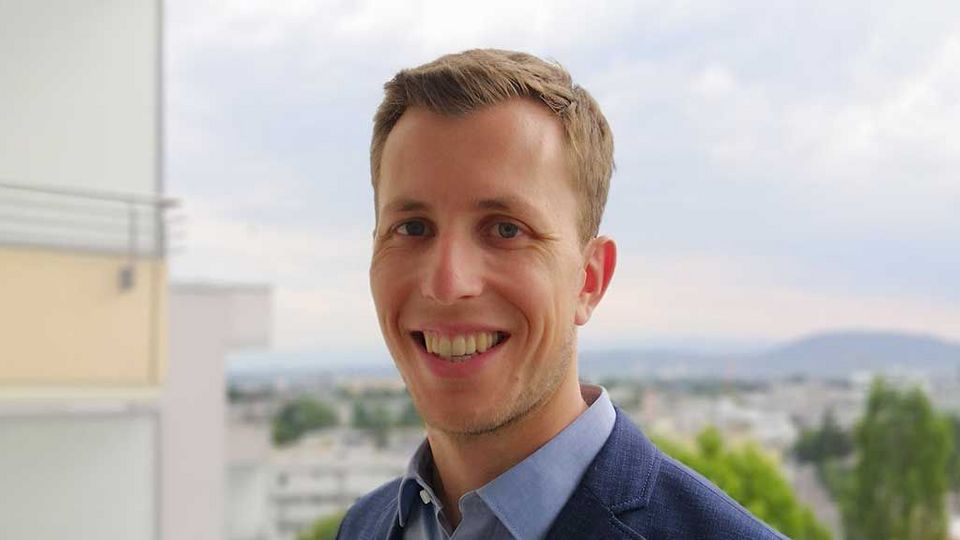
Nach seiner Ausbildung an der HTL1 Lastenstraße mit Schwerpunkt Mechatronik und Automatisierungstechnik war Martin Pecnik klar, dass er sein Wissen in…
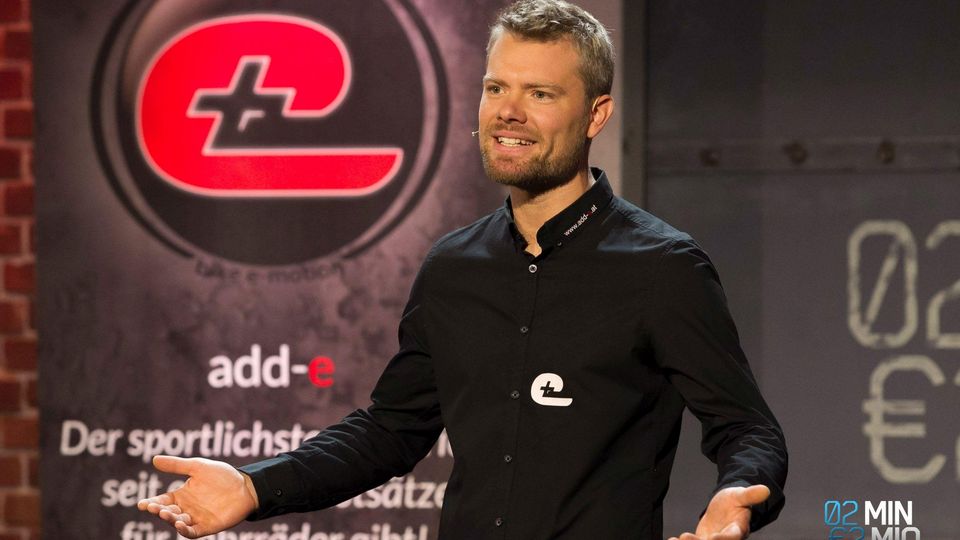
Managing Director, GP Motion GmbH
"Der Lehrplan beinhaltete alles, was ich mir vorgestellt habe. Die vorgegebenen Unterrichtszeiten und die fixierten Klausurtermine haben das Studentenleben um einiges einfacher gemacht. Auch die Organisation rund um den Studiengang Systems Design war exzellent.“
Walter Kirsch
Absolvent, Systems Engineer Multicopter Applications, Infineon
"Die gute und solide Grundausbildung im Bereich Elektrotechnik und auch die gute Teamunterstützung haben mir sehr geholfen mich schnell in mein Tätigkeitsfeld einzuarbeiten. Mit einem Technikstudium ist man sehr flexibel einsetzbar.“
Martin Ringswirth
Absolvent, Application Engineer Automotive, Infineon
FH-Prof. Dipl.-Ing. Dr.
Wolfgang WerthMag.a
Elizabeth Maggauer-HoffmannFH-Prof. Dr. habil.
Pascal NicolayDr.
Robert WinklerFH-Prof. DI Dr.
Franz Oswald Riemelmoser, MBAFH-Prof. Dr.
Christoph UngermannsFH-Prof. Dipl.-Ing. Dr. techn.
Mathias BrandstötterFH-Prof.in DI Dr.in
Ulla BirnbacherDr.
Claude HumbertFH-Prof. Dr. phil.
Colin Heller, M.A.DI Dr. techn.
Andreas Daniel HartlDipl.-Ing. Dr.
Rainer Baumschlager, MSc.Dipl.-Ing. Dr.
Stefan DoczyDI
Simon Grünberger, MScDr.
Gerhard PöppelDipl.-Ing. Dr.
Dietmar SträußniggDI
Chris Torkar, BScEuropastraße 4
9524 Villach, Austria
+43 5 90500 7700
villach[at]fh-kaernten[dot]at
Explore Campus Villach on a 360° Tour.
Make a virtual walk through the Science & Energy Labs – T10.
In order to be admitted into a bachelor degree program at the Carinthia University of Applied Sciences at least one of the following criteria must be fulfilled:
Moreover, there are degree program specific additional prerequisites as well as more comprehensive information regarding admissions on the individual web pages of the corresponding degree program. The German University of Applied Sciences (Fachhochschule) entrance qualification certificate is only valid as an admission prerequisite for an Austrian UAS/FH bachelor degree program when combined with an applicable vocational certificate.
Persons in their last year of school may apply for a study place in a bachelor degree program before taking their secondary school-leaving exams by submitting their most current secondary school grade/marks report. The secondary school-leaving certificate must be submitted during the registration process at the beginning of the semester.
In order to be admitted into a master degree program at the Carinthia University of Applied Sciences at least one of the following criteria must be fulfilled:
Persons in their last semester of their bachelor degree programs may apply for a study place in a master degree program by submitting their most current transcript of records. The completion of the bachelor degree program certificates must be submitted during the registration process at the beginning of the semester.
####ContentToReplace####
Before enrolment in a degree program at the Carinthia University of Applied Sciences, a learning agreement is concluded between the prospective student and the Carinthia University of Applied Sciences.
This contract defines the rights and obligations of the student and the Carinthia University of Applied Sciences.
The rights and obligations of the student at a glance:
The learning agreement is sent electronically to applicants who have been accepted onto a degree program. In addition to the electronic consent to the learning agreement, the timely payment of the tuition fee and the Austrian Students´ Union fee is a prerequisite for admission to the degree program.
Significant legislative basis for a UAS degree program in Austria can be found here:
FHG - Federal Act on University of Applied Sciences Degree Programs (in German only)
HS-QSG - Act on Quality Assurance in Higher Education
Regarding the accreditation of previously gained academic knowledge through courses and/or exams taken at other institutions of higher education, the respective degree program administration/director will use the principle of ‘course per course relevant accreditation.
The equivalency of the previously taken courses in terms of content and scope to the offered courses in the degree program will be determined by the degree program administrator/director. If an equivalency is determined to exist, then those courses passed with positive marks/grades will be recognized and accredited. Additional examination of academic knowledge in these cases is not foreseen.
Specialized knowledge and relevant experiences acquired through professional and on-the-job experience may also be considered for accreditation for relevant courses. In cases of accrediting professional experience for course credits, additional examinations may be carried out if applicable.
Applications for accreditation are to be submitted directly to the Program Director no later than the start date of the relevant study course(s).
The student must decide where s/he will spend the semester abroad (i.e., a partner university) and will need to coordinate with the responsible Departmental International Coordinator concerning the necessary requirements.
Before the student spends the semester abroad, s/he is required to submit a completed Learning Agreement. This document contains all the courses the student will take abroad and will be recognized at CUAS once s/he finishes the courses successfully. The courses should correspond as much as possible to the courses offered in the curriculum of the student’s CUAS study program in the relevant semester in content and semester hours. It is highly recommended to students to take 30 ECTS credits abroad.
The Learning Agreement is signed and approved by the individual student, the host institution and the program director of the study degree program or a designated faculty member at CUAS.
The Learning Agreement is a declaration of the courses which are to be taken abroad and is not valid as an official recognition document by Austrian law. Therefore, the document is to be linked to the official document “Antrag auf Anerkennung / Application for Accreditation” for academic studies abroad.
During the first four weeks of the study abroad semester the student is allowed to change the Learning Agreement. For example, previously selected courses do not take place or overlap. The host institution and CUAS must agree upon the courses to be changed. If this is approved, the changes must be listed separately on the Learning Agreement (section “Changes to the original Learning Agreement). Afterwards the document is signed and approved by the individual students, the host institution and the program director of the study degree program or a designated faculty member at CUAS.
After the semester abroad the courses taken abroad will be recognized at CUAS. Therefore, the original Transcript of Records from the host institution and the legally valid document “Antrag auf Anerkennung / Application of Accreditation” (which is linked to the Learning Agreement) are obligatory. The student lists on the document the successfully finished courses abroad. After the recognition process is positively completed, the CUAS Transcript of Records will contain those courses.
In cases where the semester abroad is not completed successfully, the Departmental Coordinator and program director of the relevant study degree program will determine on an individual basis if and what courses will be accredited and what a student can do to make up those missing credits which were not accredited.
Detailed information about a semester abroad
For further questions please contact the International Relations Office.
Degree programs at University of Applied Sciences fundamentally only offer a limited number of study places.
In the framework of the application process each applicant will carry out an interview which will influence the allocation of the study places. Additionally, specific degree study programs may require written application tests as well as content-specific/technical aptitude tests. Detailed information regarding the degree program specific application requirements are provided on the degree programs’ web pages.
Repetitive applications for a study place at the same study degree program (e.g., in the following year) is generally allowed; however, the entire application process will start anew and candidates must resubmit all documents and carry out all steps again.
Carinthia University of Applied Sciences reserves the right to levy a surety of EUR 363.36 from the applicant in case of doubt on the authenticity or correctness as regards content of the documents proving the fulfillment of the admission requirements or in case that the documents are not sufficient for a decision on the fulfillment of the admission requirements in accordance with § 4 para. 5a FHG. This surety will be reimbursed to the applicant if the review has proved the authenticity and the correctness of the documents and the fulfillment of the admission requirements.
####ContentToReplace####
Detailed information about application deadlines can be found at the websites of the respective degree programs!
Carinthia University of Applied Sciences accepts both exchange students from partner institutions and so-called ‘Free Mover’ students. The decision to accept Free Movers is made on an individual basis by the relevant Degree Program Director. In the first case an official nomination (via e-mail) from the partner institution is necessary. After the nomination the student will be provided information regarding the application procedure.
Free Movers may apply directly.
Detailed information and deadlines
In order to register as a student at CUAS, each student must fulfill the following:
The enrollment periods for each degree program will be announced in advance to all applicants.
The examination regulations are an integral part of the education contract between the student and Carinthia University of Applied Sciences. It is also available to students and lecturers on the intranet.
Exams are graded according to the FHG [Federal Act on University of Applied Sciences Degree Programs]) § 17 (1), in the Austrian Grading System:
Austrian grading scheme | Definition |
1 | EXCELLENT: |
2 | GOOD: |
3 | SATISFACTORY: |
4 | SUFFICIENT: |
Successfully completed | Positive Leistung, wo eine genaue Differenzierung nicht tunlich ist. |
5 | UNSATISFACTORY: |
Not completed | Negative performance, where a strict differentiation is not adequate |
Recognised | Transfer credits for courses with equivalent learning outcomes |
The final bachelor's and master's examinations before a committee are graded according to FHG (Federal Act on University of Applied Sciences Degree Programs) § 17 (2) in the following grading scale:
In applying this grading system, it has to be noted that the grades “Pass with merit” and “Pass with distinction” are reserved exclusively for an examination performance clearly exceeding the level of performance required to pass these final exams.
Please note: This part of the Website is only available in German.
Die Nostrifizierung ist die Anerkennung eines ausländischen Studienabschlusses (Ausbildung im tertiären Bereich/an Hochschule/Universität) als gleichwertig mit dem Abschluss des inländischen Bachelor- bzw. Masterstudiums an der FH Kärnten. Die Nostrifizierung an der FH Kärnten kann nur erfolgen, wenn ein mit dem ausländischen Studienabschluss gleichwertiger Studiengang an der FH Kärnten eingerichtet ist und sofern die Nostrifizierung zwingend für die Berufsausübung in Österreich notwendig ist (z.B. reglementierter Beruf). Ein nostrifizierter akademischer Grad entfaltet dieselben Rechtswirkungen wie ein im Inland erworbener akademischer Grad.
Innerhalb der Europäischen Union (EU) bzw. des Europäischen Wirtschaftsraumes (EWR) ist eine Nostrifizierung nicht zwingend erforderlich und daher auch nicht möglich. Die Anerkennungsentscheidung von europäischen Ausbildungen in einem reglementierten Beruf (z.B. im Bereich der medizinisch-technischen Dienste, Hebammen und Gesundheits- und Krankenpflege) erfolgt in Österreich durch die zuständige Behörde (das für Gesundheit zuständige Ministerium bzw. Landesregierungen).
Auszug aus: nostrifizierung.at
Nostrifizierungsansuchen können nur für Studienabschlüsse eingebracht werden, welche mit dem Studienangebot der FachhochschuleKärnten übereinstimmen.
Die Nostrifizierung ist ein Verwaltungsverfahren an einer Universität bzw. Fachhochschule, die an bestimmte Voraussetzungen gebunden ist.
Der/Die Antragsteller/in muss nachweisen, dass die Nostrifizierung für seine/ihre angestrebte Tätigkeit in Österreich eine zwingende (siehe: „Was ist vorzulegen?“) Voraussetzung ist. In allen anderen Fällen obliegt die Bewertung des ausländischen Studiums ohnehin dem/der Arbeit- oder Dienstgeber/in.
Die Nostrifizierung kann an jeder Universität bzw. Fachhochschule, an der ein vergleichbares österreichisches Studium eingerichtet ist, beantragt werden. In vielen Fällen kommen daher mehrere Universitäten bzw. Fachhochschulen in Betracht. An welcher davon der/die Antragsteller/in in einem solchen Fall das Verfahren beantragt, bleibt seiner/ihrer Wahl überlassen. Der gleiche Nostrifizierungsantrag kann jedoch nur an einer Hochschule eingebracht werden.
Siehe: Notwendige Anlagen zum Antrag auf Nostrifizierung
Die Nostrifizierungstaxe beträgt derzeit EUR 150,00 und ist im Voraus zu entrichten. Dazu kommen Gebühren und Verwaltungsabgaben. Mehr Informationen unter Anlagen zur Nostrifizierung.
Kriterien der Überprüfung sind Inhalte, Umfang und Anforderungen desjenigen österreichischen Studiums, mit dessen Abschluss die Gleichwertigkeit beantragt wird. Wenn einzelne Voraussetzungen nicht zutreffen, können diese als außerordentliche/r Studierende/r absolviert werden. Sämtliche Bedingungen werden mit Bescheid vorgeschrieben. Wenn der/die Antragsteller/in alle zusätzlichen Bedingungen erfüllt hat oder wenn keine Bedingungen vorgeschrieben wurden, stellt die zuständige Stelle die Nostrifizierung fest.
..., weil die Unterschiede zum österreichischen Studium zu groß sind, kann um Zulassung zum österreichischen Studium angesucht und nach erfolgter Zulassung die Anerkennung von Prüfungen aus dem ausländischen Studium, soweit sie den österreichischen gleichwertig sind, erfolgen. Danach kann das österreichische Studium fortgesetzt und abgeschlossen werden.
Auszug aus: Wie-Verläuft-eine-Nostrifizierung
The European Credit Transfer and Accumulation System (ECTS) is a student-oriented system to accumulate and transfer different study credits.
The ECTS is one of the main characteristics of the Bologna Process and is used within the European tertiary system to allow universities and other institutes of higher education to recognize and accredit students’ previous post-secondary coursework. Moreover, this allows students to accumulate credits from different institutions as well ensure that their tertiary degrees are recognized internationally. Thus, the ECTS-system regulates not only student mobility within Europe but also the admission to institutes for further studies.
The system is based upon the transparency of defined learning outcomes and learning processes. The acquisition of experience and knowledge is made transparent through the defined learning outcomes in the course description, the corresponding curriculum module and the degree program’s entire curriculum; this significantly contributes to quality assurance.
ETCS credits are calculated based upon a student’s workload, which in normal cases is necessary to pass a course successfully.
The learning outcomes describe what students should know, understand and be able to do after the successful completion of a learning process. The work load defines the amount of time typically necessary for all learning activities (e.g., lectures, seminars, projects, lab exercises, self-study, exams) in order to achieve the expected learning outcomes.
Within the European tertiary system, a semester is assessed to have 30 ECTS credits and an academic year 60 ECTS credits. The workload for an academic year ranges between 1.500 and 1.800 hours. In Austria, one ECTS credit is equivalent to a workload of 25 real hours.
The Learning Agreement (an agreement to accredit courses completed in a semester abroad) encompasses a listing of all the courses/modules/learning units that a student is to attend and complete at the partner university during the semester abroad. The courses’ ID-numbers and the ECTS credits to be transferred are listed in this document as well. When a ECTS credit transfer is to take place, then the learning agreement must be signed and approved by all three parties involved before the semester abroad: the student, the host institution and the sending institution. It is possible to make amendments to the learning agreement four weeks after the begin of the semester abroad.
The document Confirmation of Stay (Aufenthaltsbestätigung) confirms the actual stay of students at the host institution and is normally issued by the International Relations Office. The document may be issued by the host institute’s International Relations Office at the earliest two weeks before students abroad depart back to their home countries. This document is mandatory for Erasmus+ students.
The Transcript of Records (Datenabschrift) provides an overview of all study courses (completed courses/modules, grades/marks and the number of achieved ETCS credits). The ToR provides a proof of courses successfully completed and thus is very useful for student mobility (before the semester abroad, the ToR can be provided to the host institution and after the semester abroad, it provides the foundation for the recognition/accreditation of courses completed abroad at the sending institution).
The Diploma Supplement (Diplomzusatz) contains a standardized description of a completed degree program. The diploma supplement aims to improve the overall international transparency of degrees as well as to serve as a document for the recognition of academic and professional qualifications.
Infos unter www.fh-kaernten.at
For payments within the additional period, the tuition fee increases by 10%. Registration is only possible after receipt of payment at the account of CUAS!
*Please note the individual start of the courses! The exact dates can be found on the website of the respective degree programme, or contact the responsible administration for more information
**Please refer to the websites of the respective degree programs to find out which application periods are open.
*** Deviations and changes concerning the lecture-free periods are possible! Please inform yourself
about your study programme with your administration.